When it comes to choosing a travel trailer, one of the most heated debates among enthusiasts is aluminum vs. fiberglass travel trailers. Each type has its unique advantages and disadvantages, and understanding these can enhance your travel experience significantly. In this article, we’ll explore these differences, dive into personal travel experiences, and provide practical tips to help you choose the right trailer for your adventures.
The Basics of Travel Trailers
Travel trailers are a popular option for those who love the freedom of the open road. They provide a home away from home, allowing travelers to explore new places without sacrificing comfort. However, with various materials used for construction, such as aluminum and fiberglass, it’s essential to know which suits your needs best.
What Are Aluminum Travel Trailers?
Aluminum travel trailers are constructed primarily from aluminum panels. They are known for their lightweight and durability, making them easy to tow and resistant to rust. During my travels through the scenic routes of the Pacific Northwest, I encountered numerous aluminum trailers, each showcasing a sleek, modern aesthetic.
What Are Fiberglass Travel Trailers?
Fiberglass travel trailers are made from molded fiberglass, providing a seamless and sturdy exterior. They often boast better insulation properties and are resistant to water damage. On my trips to the deserts of Arizona, I noticed how fiberglass trailers maintained a cooler interior despite the scorching heat, allowing for a comfortable environment to relax in after a long day of exploration.
Key Differences Between Aluminum and Fiberglass Travel Trailers
| Feature | Aluminum Trailers | Fiberglass Trailers |
|---|---|---|
| Weight | Generally lighter | Heavier due to construction |
| Durability | Resistant to rust; may dent | Highly durable; resistant to water |
| Maintenance | Low; easy to repair | Moderate; can be costly if damaged |
| Insulation | Standard insulation | Superior insulation |
| Cost | Generally more affordable | Generally more expensive |
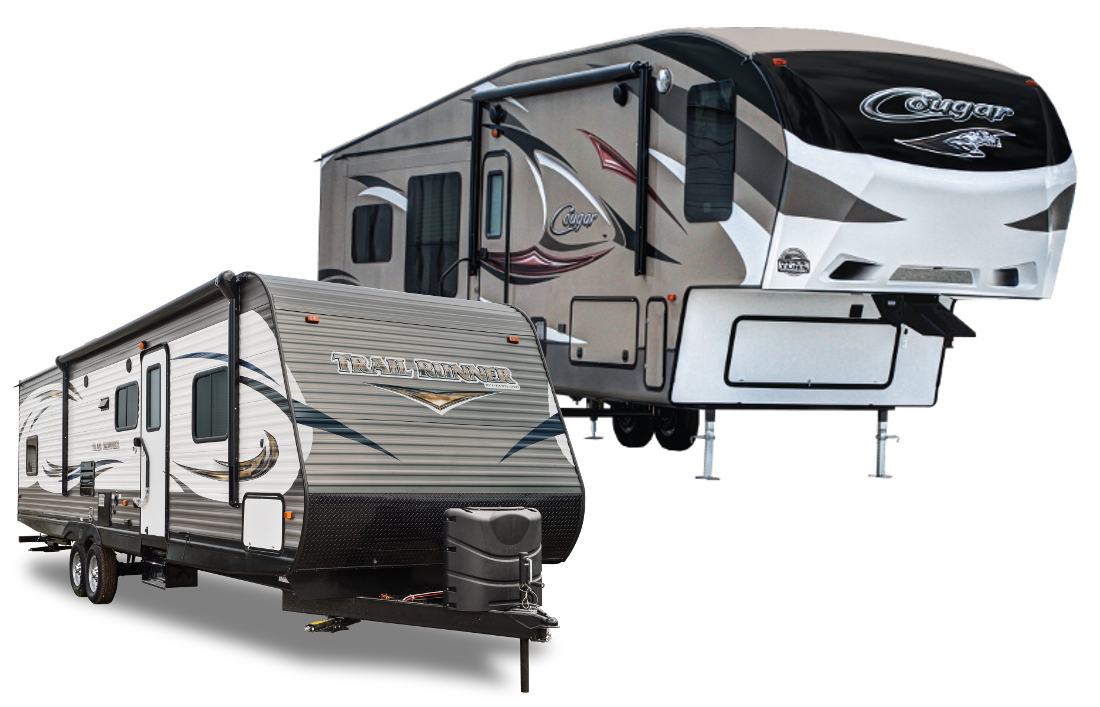
Pros and Cons of Aluminum Travel Trailers
Pros
- Lightweight and easy to tow.
- Higher resistance to rust compared to steel.
- Lower cost, ideal for budget-conscious travelers.
- Easy to find spare parts and repairs.
Cons
- Can dent easily from impacts.
- May not insulate as effectively as fiberglass.
- Less aesthetic appeal for some travelers.
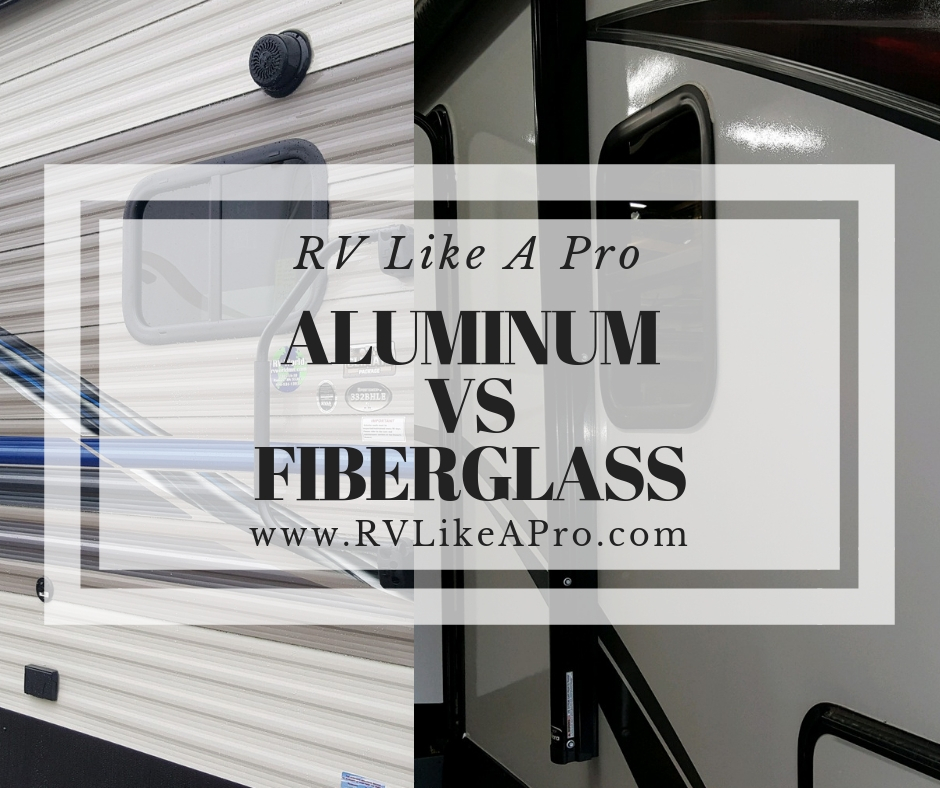
Pros and Cons of Fiberglass Travel Trailers
Pros
- Superior insulation, keeping the interior cool in summer and warm in winter.
- Seamless construction means fewer leaks and water damage risks.
- Generally more aesthetically pleasing with a modern look.
Cons
- Higher cost of purchase and repairs.
- Heavier, may require a more robust towing vehicle.
- Less available repair facilities compared to aluminum.

Travel Trailer Ratings and Reviews
When looking at travel trailers, it’s essential to consider the experiences of fellow travelers. Here are some highly-rated options for both aluminum and fiberglass trailers from popular eCommerce sites:
Top Aluminum Travel Trailers
| Model | Rating | Price | Review |
|---|---|---|---|
| Jayco Jay Feather | 4.7/5 | $25,000 | Ideal for families, lightweight but spacious. |
| Airstream Bambi | 4.8/5 | $40,000 | Classic design with a modern touch, a joy to tow. |
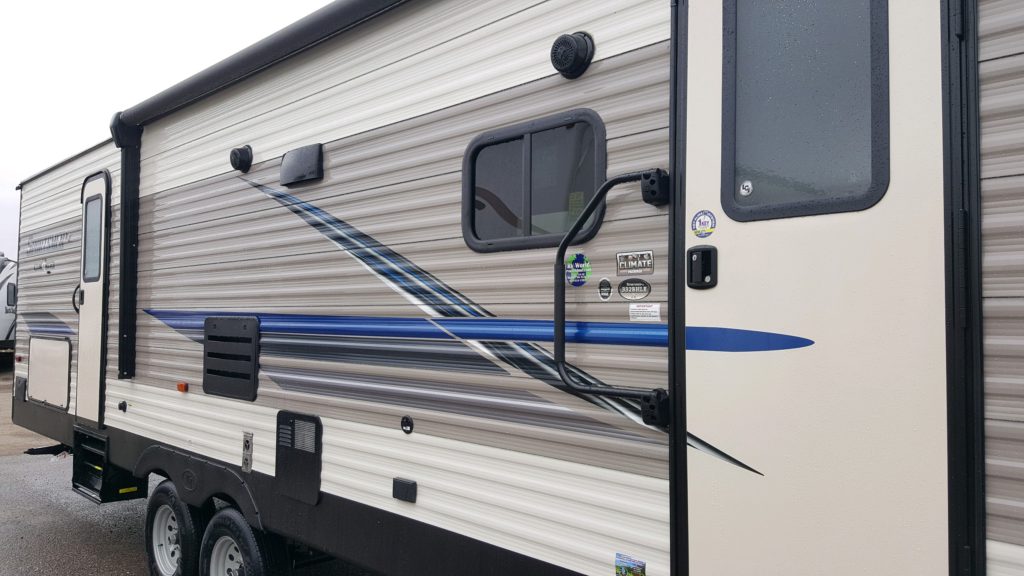
Top Fiberglass Travel Trailers
| Model | Rating | Price | Review |
|---|---|---|---|
| Casita Freedom | 4.6/5 | $28,000 | Great insulation, perfect for year-round travel. |
| Oliver Legacy Elite | 4.9/5 | $50,000 | High-end quality, excellent customer service experience. |
Travel Tips for Choosing the Right Trailer
Consider Your Budget
When picking a travel trailer, always start with your budget. Aluminum trailers often come at a lower price but may lack in features compared to fiberglass models. Determine what you’re willing to spend upfront and in maintenance costs.
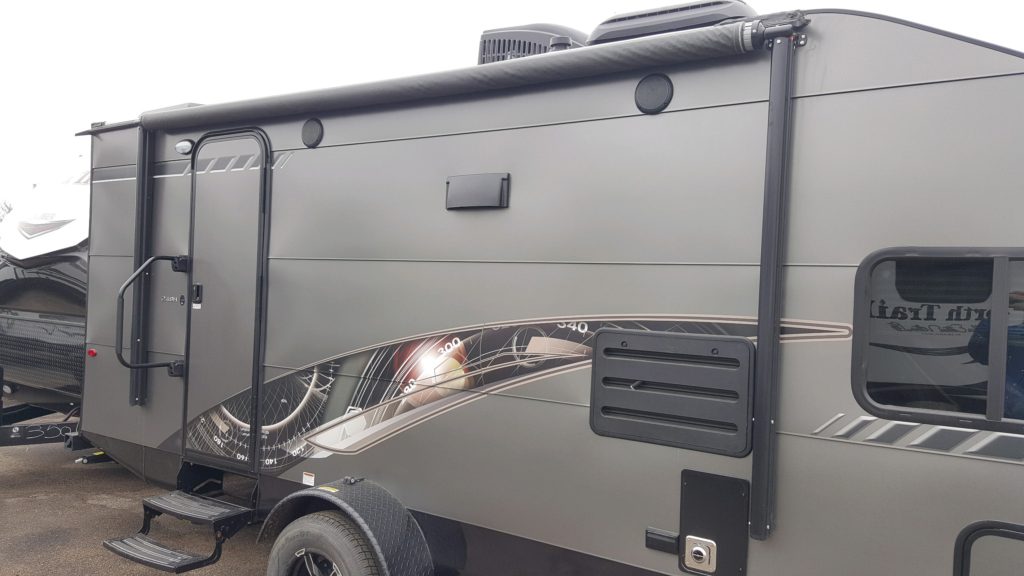
Think About Your Travel Plans
Your travel plans should heavily influence your choice. If you plan extensive travel in various climates, the superior insulation of fiberglass could be a deciding factor. For occasional weekend trips, an aluminum model might suffice.
Assess Towing Capacity
Ensure your vehicle can handle the weight of your chosen trailer. Aluminum trailers are lighter, making them more versatile for smaller vehicles, while fiberglass requires more powerful towing capacities.
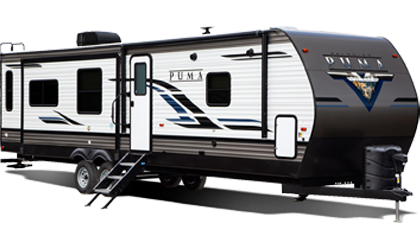
Destination Highlights for Trailer Enthusiasts
Traveling in a trailer opens up a world of adventure. Here are some must-visit destinations for trailer enthusiasts:
1. Yellowstone National Park
With its stunning geysers and diverse wildlife, Yellowstone is a top destination for trailer travelers. Many campgrounds can accommodate both aluminum and fiberglass trailers, providing a scenic backdrop for your adventures.

2. The Grand Canyon
The breathtaking views of the Grand Canyon are best enjoyed from the comfort of your trailer. Multiple RV parks offer full amenities, ensuring a comfortable stay amidst nature.
3. Napa Valley, California
For wine lovers, Napa Valley offers picturesque vineyards and luxurious stay options. Many vineyards even allow trailers on-site, making wine tastings a breeze!
FAQs about Travel Trailers
What is the best type of travel trailer for full-time living?
If you plan to live in your trailer full-time, fiberglass models are often preferred due to their superior insulation, durability, and overall aesthetic appeal.
How do I maintain my travel trailer?
Routine maintenance is essential for both aluminum and fiberglass models. Regular inspections for damage, proper cleaning, and seasonal checks of your trailer’s systems will enhance longevity.
Can I tow a fiberglass trailer with a small SUV?
It depends on the weight of the trailer and the towing capacity of your SUV. Fiberglass trailers are usually heavier, so ensure your vehicle meets the necessary requirements.
Are aluminum trailers prone to leaks?
While aluminum trailers can be less susceptible to water damage than wood-framed trailers, they can develop leaks if not maintained properly. Regular inspections and sealant applications are recommended.
Conclusion: Making the Right Choice for Your Travels
Choosing between aluminum and fiberglass travel trailers ultimately comes down to your personal needs, style, and travel plans. Both options provide unique benefits, and with the right information, you can make an informed decision that enhances your travel experiences. Each adventure is an opportunity to create lasting memories, so choose a trailer that aligns with your wanderlust and get out there on the open road!